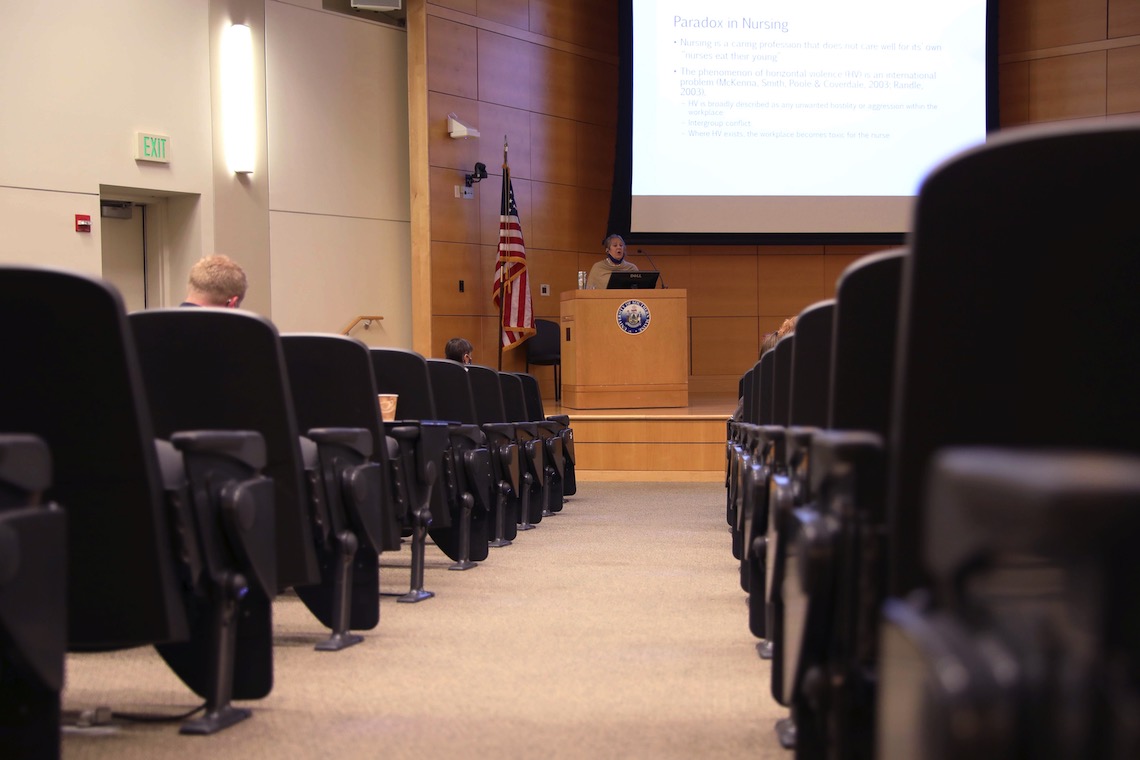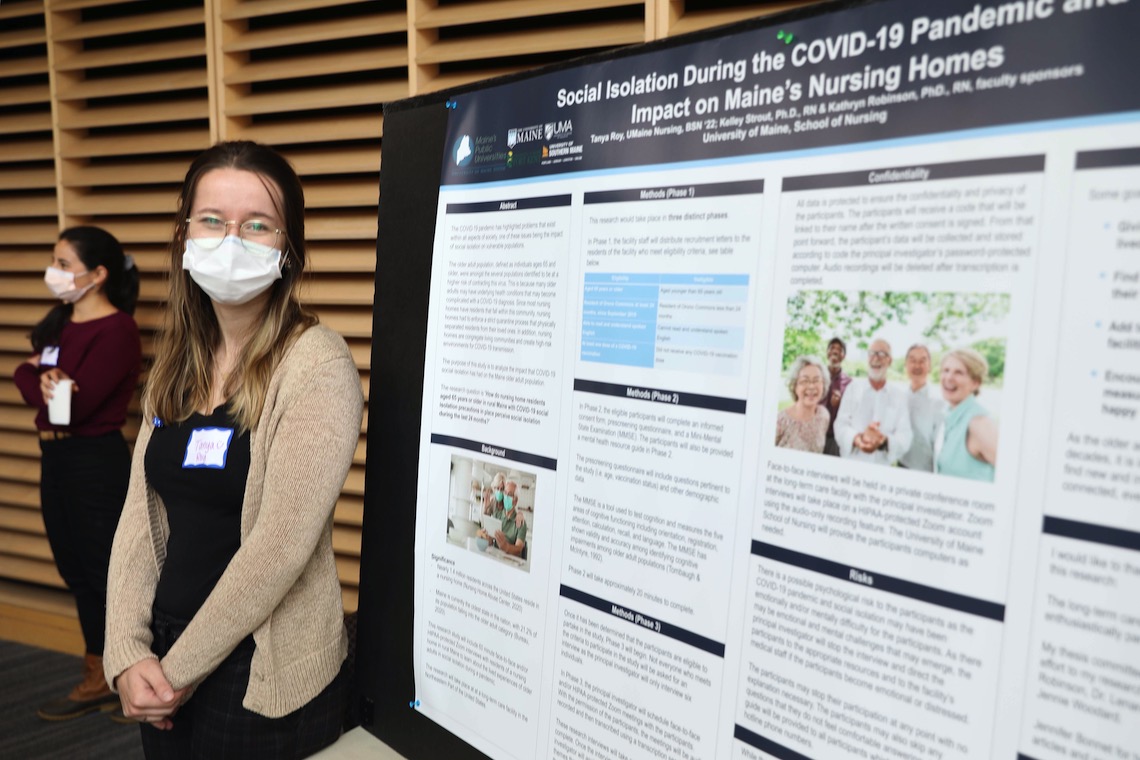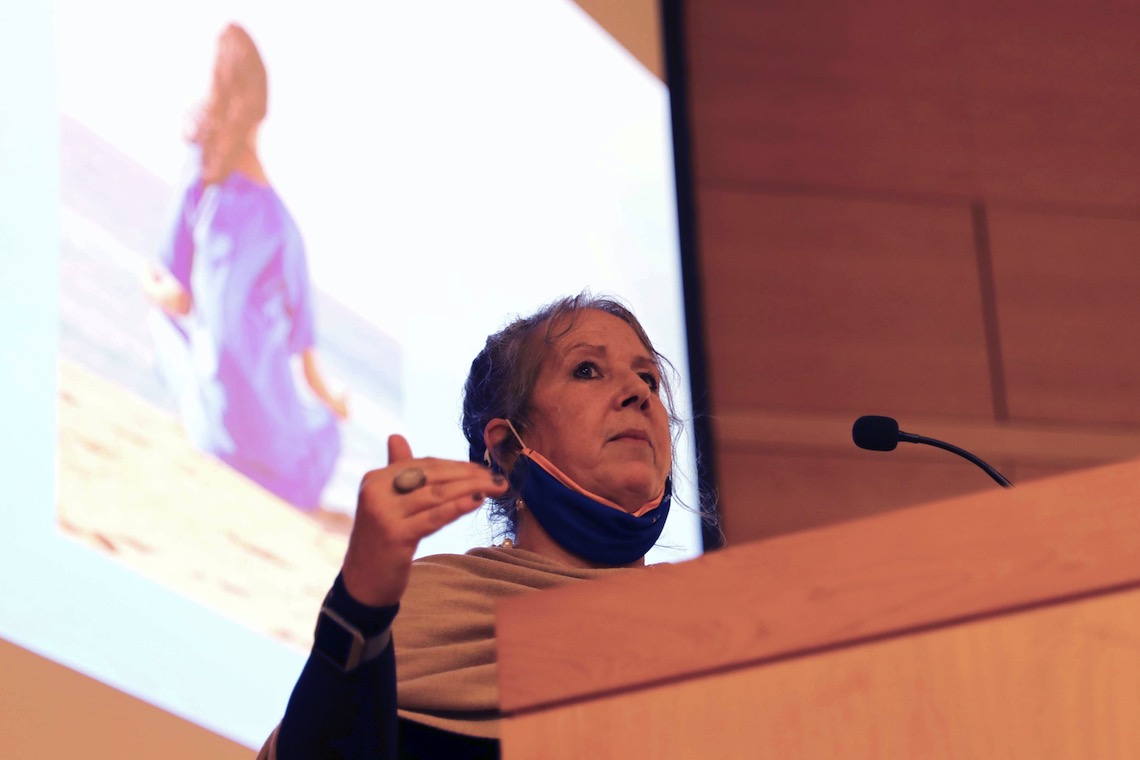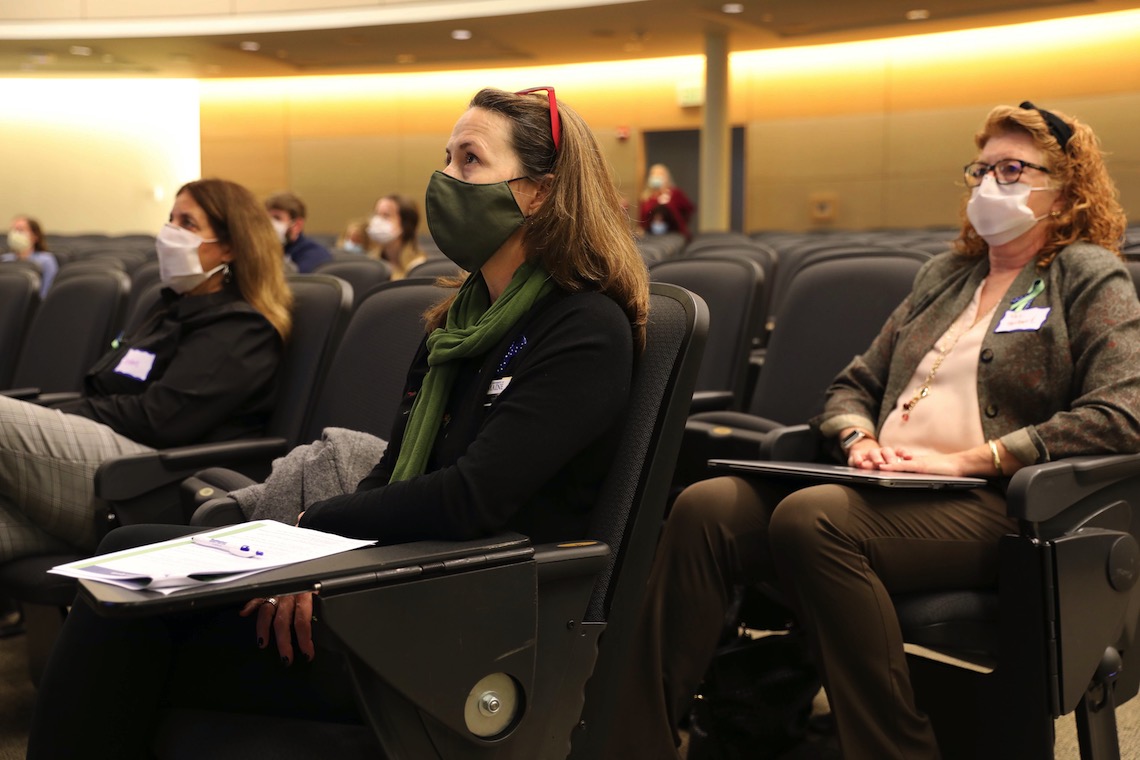Who cares for the caregivers? That was one of the many big questions presenters explored at the UMS Nursing Research Symposium.
Educators and students from across the University of Maine System gathered on Friday, October 1, at the Abromson Center in Portland to better understand the challenges facing their profession. The University of Southern Maine hosted the event which also drew participants from the nursing programs in Orono, Augusta and Fort Kent.

Presentations ran through the day on the symposium’s central theme of Environmental Sustainability for the Nurse’s Mind, Body, & Spirit. Guests had the option to attend either in person or remotely through an interactive livestream.
In-person visitors had the added opportunity to peruse the informational displays and poster presentations that were set up in the lobby outside of the auditorium. Many of them touched on the effects of the COVID-19 pandemic with topics like changes in physical activity strategies and the impact of social isolation at nursing homes.

The speaking portion of the symposium began with the keynote address by Dr. Brenda Petersen, Associate Dean of the USM School of Nursing. She talked about building habits for a healthy environment in an academic setting, which can carry over into the workplace.
“There’s a reputation that nurses eat their young,” Petersen said. “We want to change what we are known for to nurses feeding our young.”

The COVID-19 pandemic further exacerbated problems that nurses were already facing, like understaffing, heavy workloads, and sometimes belligerent patients. It can be easy for new nurses to get overwhelmed. And veteran nurses are often so busy with their own responsibilities that they don’t have time to stop and help a struggling colleague.
For long-term success in the field and job retention, Petersen said workplace culture is the ultimate determinate. She called for the creation of a “culture of caring,” not just for patients but also among fellow nurses.
Petersen said educators can set a model for veteran nurses by welcoming questions instead of discouraging them. Students also have an obligation, she said, to be courageous enough to ask the questions that make them uncomfortable and continue asking until they get the answers they need.
Facial expressions can also play an important role in creating an open and welcoming dialogue. Petersen said she’s been on the receiving end of enough eye rolls from students that she knows the impact they can have. Respect goes both ways. Peterson said students need to show that they’re receptive to the lessons and advice they’re being given.
That awareness of their own bodies is something nurses should cultivate, Petersen said, not only for interpersonal communication but also for their own well-being. She recommended deep, cleansing breaths as a simple and effective tool against the corrosive effects of stress on the body and mind.

The presenters who followed Petersen expanded on those themes, offering different strategies for dealing with the challenges that nurses may encounter in a wide range of environments and circumstances.
The UMS Nursing Research Symposium was the first of its kind. Planning for the symposium was a team effort involving nursing faculty across the University of Maine System, led by Dr. Debra Gillespie, Assistant Professor at the USM School of Nursing. Organizers said they intend to make it a yearly event.

